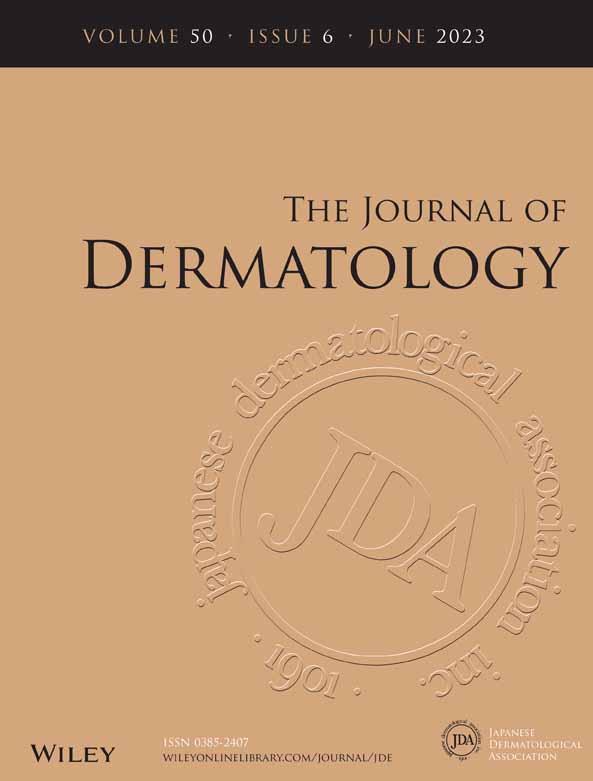COVID-19 infection- and vaccination-related exacerbation of Darier's disease in a single patient
Abstract
Darier's disease (DD) is a rare autosomal dominantly inherited disorder. DD patients usually present with widespread keratotic eruptions with itching in the seborrheic regions that are exacerbated by various factors, including heat, sweat, and physical trauma. The SARS-CoV-2 (COVID-19) pandemic has stirred confusion among the medical community, including dermatologists, as this infection has been implicated in various skin conditions. Only a handful of reports have documented DD associated with COVID-19. Here, we report a 30-year-old male with Darier's disease whose symptoms were exacerbated following both COVID-19 vaccination and COVID-19 infection. The patient had noticed slight eruptions 7 years prior, but was not particularly concerned. After COVID-19 vaccination and infection, he had erythematous maculopapular lesions in large areas of the trunk and extremities. The previously reported pathogenic variant c.2255_2257del (p.(Ile752_Tyr753delinsAsn)) in ATP2A2 was detected in the present patient. Oral etretinate greatly improved his DD manifestations. As far as we know, the present patient is the first genetically confirmed DD case who showed both COVID-19 infection- and vaccination-related DD exacerbations independently. We think that the further accumulation of DD cases exacerbated by COVID-19 infection/vaccination is needed to clarify the mechanisms of DD aggravation.
CONFLICT OF INTEREST
The authors declare that we have no conflicts of interest.




